A Land Where Civilizations Meet
Turkey is a country where continents collide and civilizations rise and fall, leaving behind layers of history and culture. From the earliest human settlements to powerful empires like the Hittites, Greeks, Romans, Byzantines, and Ottomans, Turkey’s story is woven through ancient cities, sacred sites, and vibrant local traditions. For travelers passionate about history and heritage, Turkey offers an immersive journey into the past—one that is best experienced through a cultural and historical package tour. These tours offer expertly curated routes, professional guides, and seamless logistics, allowing you to explore the heart of Turkish history without missing a beat.
What Makes Turkey a Cultural Powerhouse?
Turkey’s unique location at the crossroads of Europe and Asia has made it a melting pot of civilizations for millennia. This geographic and cultural convergence has left an extraordinary legacy visible in its architecture, cuisine, religions, and daily life. From the grandeur of Ottoman mosques to the intricate mosaics of Byzantine churches and the well-preserved ruins of Greco-Roman cities, the country is a living museum. But culture in Turkey isn’t just about the past—it’s vibrant and alive in its traditional music, handicrafts, family customs, and regional cuisine. Every corner of Turkey offers a new cultural lens, making it an endlessly fascinating destination for travelers seeking depth and authenticity.
Top Historical Sites in Turkey to Include in Your Tour
Istanbul Tours: Constantinople’s Legacy 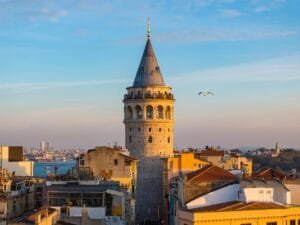
As Turkey’s cultural capital, Istanbul is a must-visit for any historical tour. Once the seat of the Byzantine and later the Ottoman Empire, the city is brimming with iconic landmarks like Hagia Sophia, the Blue Mosque, Topkapi Palace, and the ancient city walls. The Grand Bazaar and Spice Market reflect the city’s long-standing commercial spirit, while neighborhoods like Balat and Fener echo with the voices of Greek, Armenian, and Jewish heritage.
Ephesus Tour: The Jewel of the Ancient World 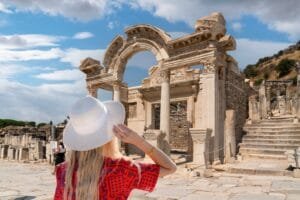
Ephesus is one of the most complete classical cities in the world. Walking along its marble streets, you’ll pass temples, theatres, and the famous Library of Celsus. Guided tours help you imagine life during the Roman period, and nearby sites like the House of the Virgin Mary and the Basilica of St. John add spiritual depth to the visit.
Gobekli Tepe Tour: The World’s Oldest Temple 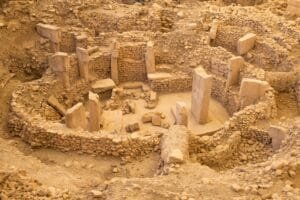
Located in Southeastern Turkey, Göbekli Tepe is a revolutionary archaeological site that predates Stonehenge and the Egyptian pyramids by thousands of years. Its massive T-shaped pillars and intricate carvings are rewriting our understanding of early civilization. Visiting this site offers a rare glimpse into human prehistory.
Cappadocia Tour: Cave Churches and Christian Heritage 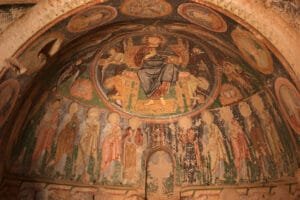
Beyond its surreal landscapes, Cappadocia is home to rock-cut churches adorned with frescoes, underground cities that sheltered early Christians, and monasteries carved into volcanic stone. The region is essential for understanding early Christian life and is a UNESCO World Heritage treasure.
Troy and Gallipoli Tour: Myth and Modern History 
The ancient city of Troy connects travelers to Homeric legends, while nearby Gallipoli offers a sobering look at WWI history. Many cultural tours include both to explore the continuum between mythology and modern memory.
Aphrodisias, Pergamon and Hierapolis Tours: Lesser-Known Wonders 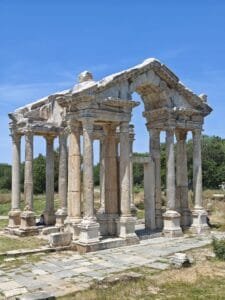
These sites may not make every travel brochure, but they’re among the most beautiful and historically rich in the country. Aphrodisias was a center of art and sculpture, Pergamon housed an ancient medical center and dramatic theatre, and Hierapolis combines spa culture with Roman ruins—all equally impressive and less crowded.
Museum and Cultural Experiences 
No cultural tour of Turkey is complete without visiting its world-class museums and engaging in hands-on experiences. In Istanbul, the Archaeological Museum houses artifacts from every corner of the empire. The Zeugma Mosaic Museum in Gaziantep displays exquisite Roman mosaics, while the Mevlana Museum in Konya introduces visitors to Sufi mysticism and the Whirling Dervish tradition. Many tours also include cultural workshops—learn the art of Turkish marbling (Ebru), try your hand at pottery in Cappadocia, or attend a Turkish cooking class where you prepare traditional dishes. These experiences bring the country’s rich heritage to life and create lasting memories beyond sightseeing.
Sample 10-Day Cultural and Historical Tour of Turkey
A typical 10-day cultural itinerary may begin in Istanbul, spending three days exploring its Byzantine and Ottoman legacy. From there, you head west to Troy and Pergamon, then to the Aegean coast for a guided tour of Ephesus. The journey continues inland to Pamukkale and Hierapolis, followed by Konya to explore Sufi traditions and the Mevlana Museum. The tour concludes with several days in Cappadocia, discovering its unique geology, cave churches, and early Christian heritage. Each stop is guided, with historical context provided by experts, and accommodations often reflect local character. The tour is balanced, informative, and deeply rewarding for those who want to understand Turkey’s layered past.
Guided Tours vs Independent Travel
While independent travel offers freedom, cultural and historical tours guided by experts provide unmatched depth and ease. With a guide, ancient ruins come alive through stories, timelines, and symbolism. You gain access to areas that might be overlooked or misunderstood without context. Moreover, language barriers, transportation issues, and ticket logistics are all handled for you. Especially in archaeological sites, having a licensed guide can turn a pile of stones into an epic story of empire, religion, or rebellion. For serious cultural travelers, guided tours offer both insight and convenience.
Best Time to Join a Cultural Tour in Turkey
The best seasons for cultural travel in Turkey are spring (April–June) and autumn (September–October). During these months, the weather is pleasant for walking tours, and historical sites are less crowded. These periods also coincide with cultural events and festivals, such as the Whirling Dervish ceremonies in Konya or heritage preservation weeks in major cities. Summer can be hot, especially inland, and winter, while quiet, may limit access to some outdoor ruins. Choosing the right season enhances not just your comfort, but your connection to Turkey’s rich cultural landscape.








